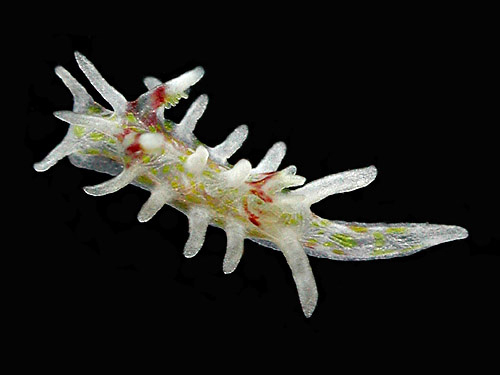Cal Academy Adds Over 100 New Species to the Library of Life in 2024

New species of sea slug, Bermudella lahainensis.
Researchers at the California Academy of Sciences have unveiled a list of all the new animal, plant and fungi species that they added to the Library of Life in 2024.
The new species include a pygmy pipehorse camouflaged in sponges found off the coast of South Africa, an edible and endangered Oaxacan dahlia that looks like a succulent, and 136 other fishes, leaf bugs, worms, sea slugs, spiders, ghost sharks and more.
These discoveries expand our understanding of Earth’s biodiversity. Below, KQED has compiled a list of some of the most eye-catching of the new plants and critters.
